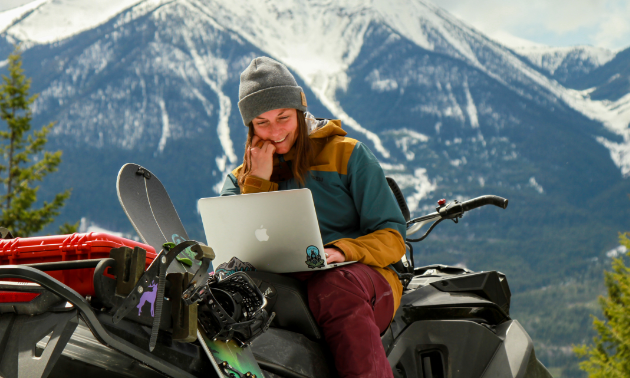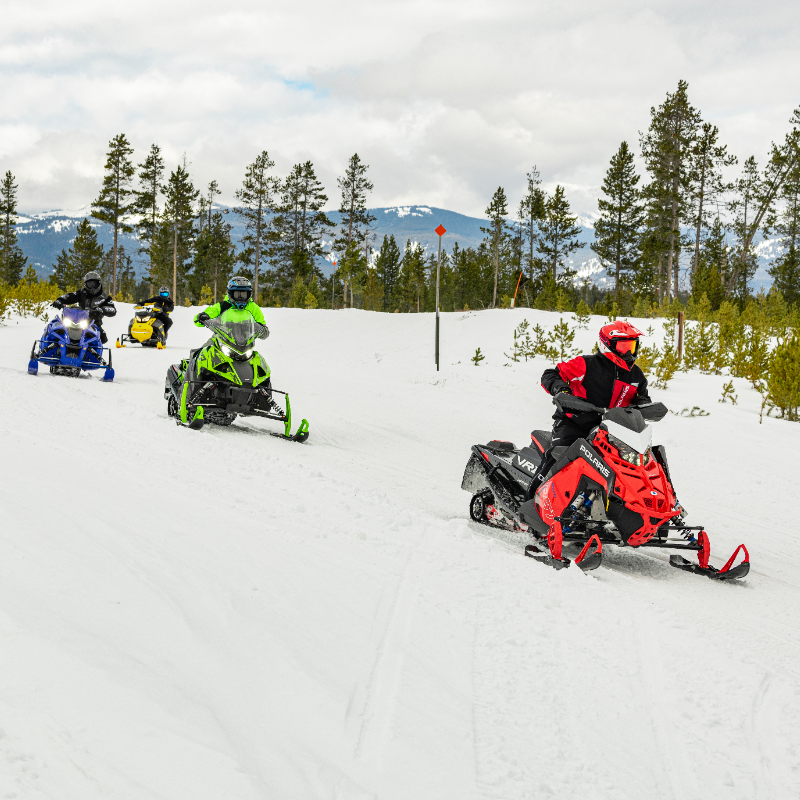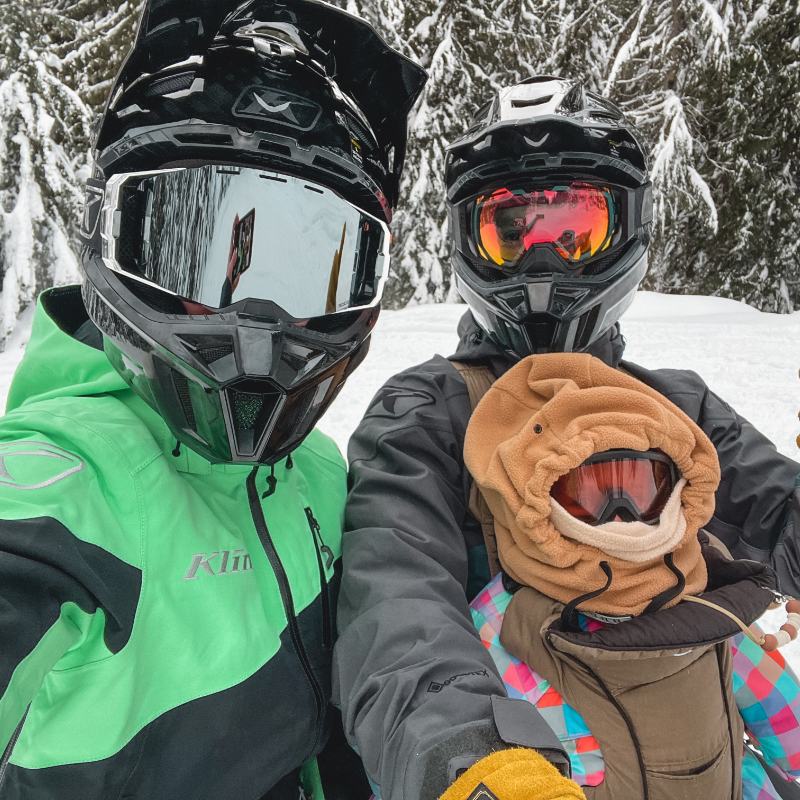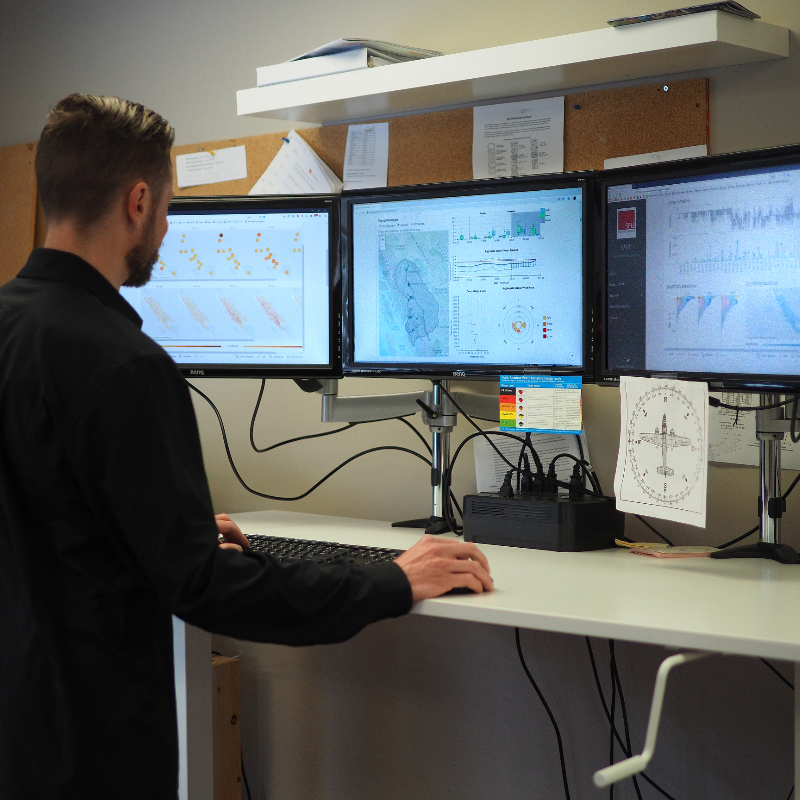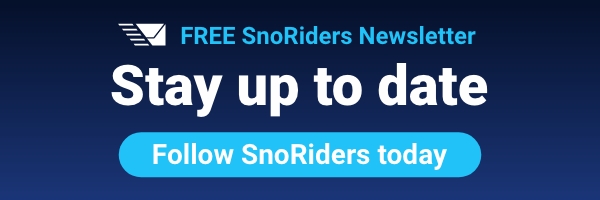The upheaval caused by COVID-19 has left many businesses reeling and struggling to adjust to all the new guidelines imposed by the government. Fortunately for the snowmobiling community, the shutdown in March was near the end of sledding season. That means businesses and snowmobile clubs have had the spring and summer to adjust and make the necessary changes to continue operating this winter. Stay Wild Backcountry Skills, an organization that teaches avalanche education and backcountry skills camps in Golden, B.C., has been proactive during the pandemic to put themselves and their students in the best possible position.
“We have been talking about creating online courses for a couple of years and the pandemic was the push we needed,” said Brittney Dickson, owner, lead instructor and coach for sled and touring camps at Stay Wild Backcountry Skills. “In April, we purchased an online platform and got to work with putting material online. After several months of work, we were able to launch the Avalanche Skills Training (AST) level 1 classroom portion online. It is a fully functioning online course with text, videos and quizzes.”
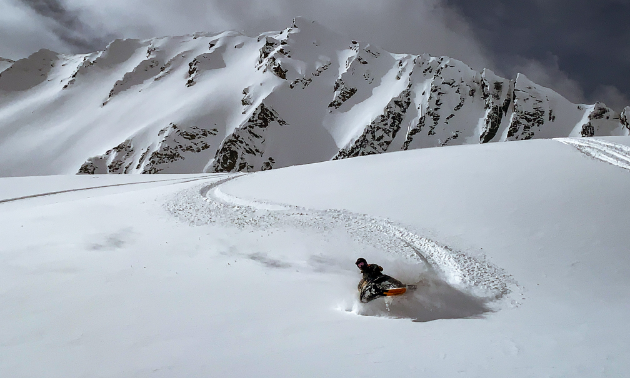
In the past, Stay Wild would have a classroom day followed by a field day. This season, students will complete the online course in the comfort of their own home. They will then meet up the evening before the field day—either physically distanced in a large classroom or via Zoom—to answer questions and drive home key points.
“People like the idea of learning at their own pace from their homes,” Dickson said. “We offer just the online course for those who do not want to commit to the field day just yet (especially with the uncertainty we are facing) or students can sign up for the full course all at once, selecting the field day and location for this upcoming season.”
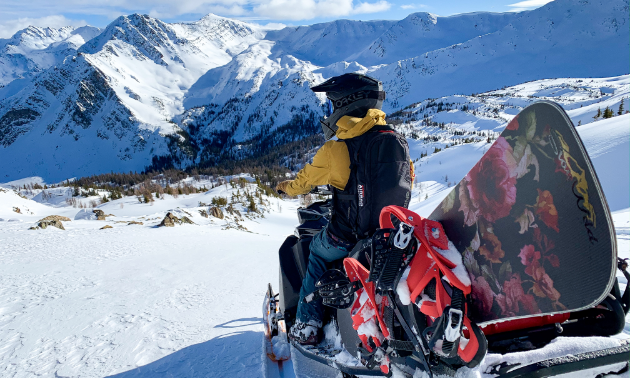
Field days are outside where physical distancing can easily be maintained. Students will be required to bring a face covering in case there are situations where two metres cannot be maintained.
“We typically run our ski / snowboard avalanche courses in the backcountry off of local ski hills to keep the access easy for beginner students,” Dickson said. “We are working on backup plans to offer courses in other locations depending on ski hills’ COVID protocols.
“We are confident that we can run our sled-specific avalanche courses in the same locations while maintaining physical distancing. We will avoid warming huts and be mindful when running rescue scenarios to keep groups together that register together.”
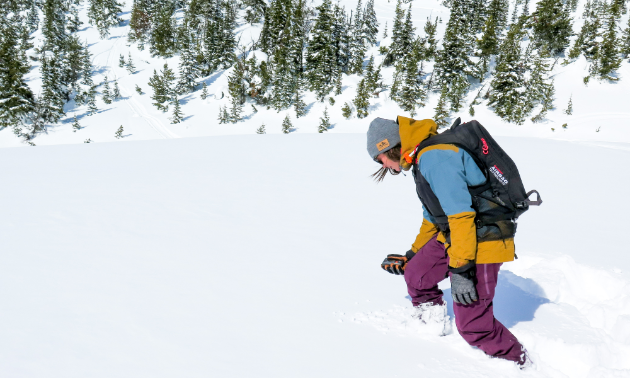
Stay Wild is currently working on creating a backcountry refresher online course and putting their AST 2 material online, and they already offer Ladies Sled Shred Camps, which turn snowmobiling from a challenging and frustrating sport into an enjoyable one.
“Our main goal is—and always has been—to create a comfortable and welcoming learning environment. We know times are tough right now, but if we work together by supporting one another, we will get through this. We are so excited to see our students this winter and spend some time in the mountains.”
COVID concerns
Even with a proactive mindset, there are still a lot of uncertainties about winter.
“This upcoming season is one big question mark,” Dickson said. “The majority of our students are typically here for the season, coming from overseas, the States, and across Canada. We are optimistic that we may see a shift in our market to locals but it is a bit of a wait-and-see scenario.”
Because of how things played out this summer, Dickson sees plenty of reasons for optimism in this regard.
“If the winter is anything like the summer, I think we will see a huge boost in numbers of backcountry sledders and users,” she said. “It will be more important than ever to have proper avalanche training and learn how to mitigate your risk around other groups. It is great to see so many people enjoying the backcountry this summer. We are excited to see what winter brings and if Canadians will explore their backyard more than ever before.”
